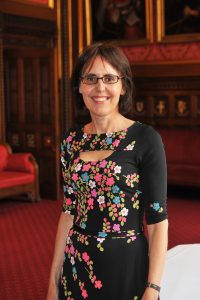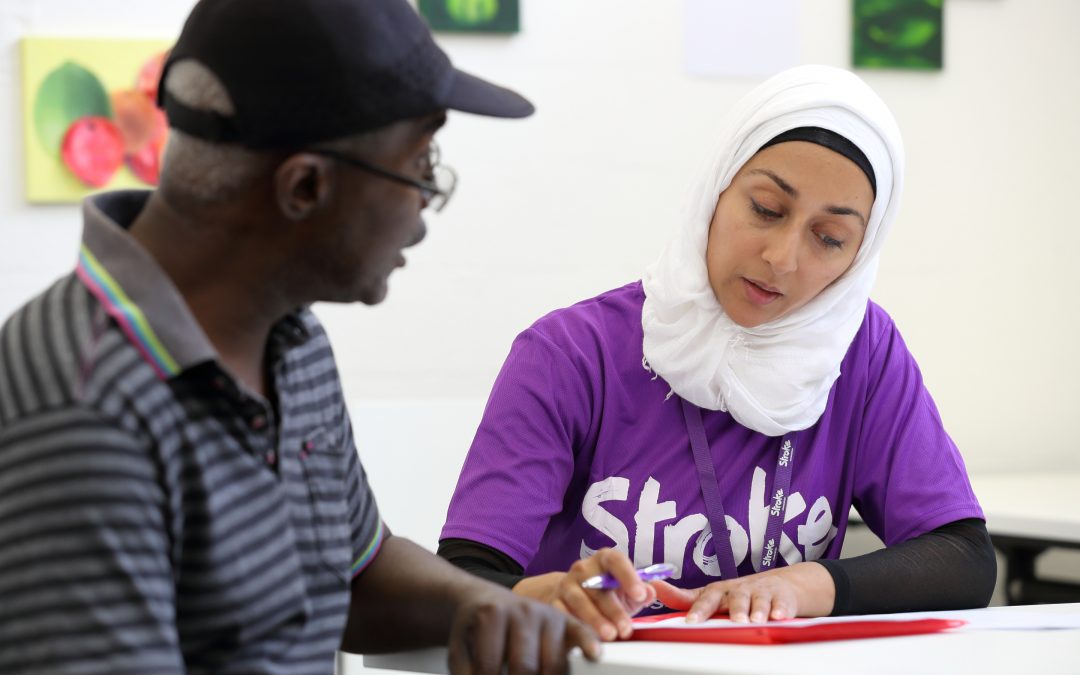 “Stroke survivors in the UK are going without vital care and support. There are 1.2 million stroke survivors across the UK, but sadly 45% of people feel abandoned after leaving hospital” says Juliet Bouverie, Chief Executive of the Stroke Association UK.
“Stroke survivors in the UK are going without vital care and support. There are 1.2 million stroke survivors across the UK, but sadly 45% of people feel abandoned after leaving hospital” says Juliet Bouverie, Chief Executive of the Stroke Association UK.
SAFE: What is one issue related to the life after stroke in your country that you think needs special attention?
JB: We need to put the spotlight on long-term stroke care and rehabilitation. As anyone dedicated to helping stroke survivors rebuild their lives will recognise, the condition is extremely complex. People affected by stroke need rehabilitation that covers emotional support, help with finances, support services for carers, as well as physiotherapy, and speech and language therapy. Sadly, a recent Stroke Association survey of stroke survivors across the UK found that, in the aftermath of their stroke, only 18% of stroke survivors were confident that they would get enough support to make a good recovery. And 80% of stroke survivors told us they initially feared they would be sent to a care home.
Stroke causes a wide range of physical, communication, emotional and cognitive difficulties, and more than half of survivors report fatigue, memory and concentration difficulties, anxiety or low mood. Time and again we’ve seen thousands of people adapt to a new life after stroke. But it’s only possible with the right specialist support – and a ton of courage and determination. But the sad truth is that thousands of stroke survivors do not receive the support they need with their recovery when they leave hospital. There are huge regional variations in stroke support and care, which leaves stroke survivors at the mercy of a postcode lottery. On average, stroke survivors receive less than half the amount of rehabilitation recommended by national guidelines and many report feeling ‘abandoned’ after leaving hospital.
We know there are hospitals, stroke units and dedicated professionals leading the way for stroke care and support right across the UK. But too many stroke survivors are being let down because they aren’t given ongoing support to rebuild their lives. We want everyone affected by stroke to have the rehabilitation and long-term support they need, no matter where they live. No stroke survivor should be denied the chance to rebuild their life.
SAFE: What would be the solution, i.e. what is your organisation’s position regarding this issue?
JB: We know that the number of strokes is set to increase, and that too many stroke survivors aren’t getting access to the services they need to make their best possible recovery after they leave hospital. At the moment, we know there’s too much variation in the quality and coverage of care: too many of therapies recommended by clinical guidelines aren’t available across the country.
Stroke is also a hugely expensive condition, costing around £26bn a year across the UK. If we don’t act to roll out some of the actions we know can stop stroke before it strikes, save lives and prevent serious disability, the costs will spiral. We can’t afford not to act.
We want everyone affected by stroke to have access to the support they need and should expect, in line with national guidelines. That’s why we’re working across England, Scotland, Wales and Northern Ireland to support and drive changes which will improve the lives of people affected by stroke. In England, for example, we’re working closely with NHS England to deliver the Long Term Plan for the NHS, which includes the National Stroke Programme.
This Programme supports health and care services to make improvements from prevention and treatment right through to rehabilitation and long-term support after leaving hospital, including psychological support for stroke survivors. Our focus now is to ensure promised improvements are delivered.
SAFE: Please tell us more about your organisation.
JB: We’re here to support people to rebuild their lives after stroke. We believe everyone deserves to live the best life they can after stroke. We want to drive better outcomes in stroke prevention, treatment and lifelong support for everyone affected by stroke
We provide specialist support, fund critical research and campaign to make sure people affected by stroke get the very best care and support to rebuild their lives. The Stroke Association also offers vital support and information through our Stroke Helpline. My Stroke Guide is our online community of over 11,000 people affected by stroke, which many people said helps with their recovery.
Rebuilding lives after stroke is a team effort. It takes the determination of stroke survivors and carers, the generosity of supporters and the dedication of the healthcare and research communities to get there. We work hard to connect everyone in the stroke community so that people can live the best life possible after stroke. We have a number of stroke clubs and groups which provide essential long-term peer support to stroke survivors, carers, family and friends.
The Stroke Association’s campaign, Rebuilding Lives, aims to change perceptions about stroke, and reach more people who need support with their recovery. We hope the campaign, which includes TV advertising, will help us get our message out to people who need help and support, and raise awareness that it’s possible to rebuild lives after a stroke. To find out more, visit https://www.stroke.org.uk/rebuilding-lives





